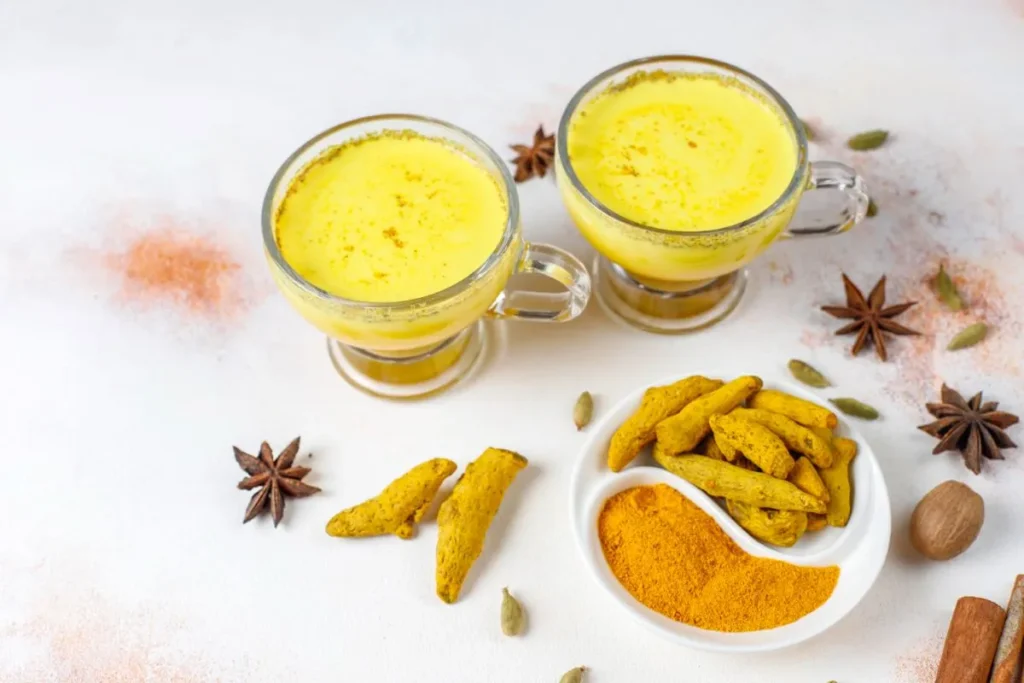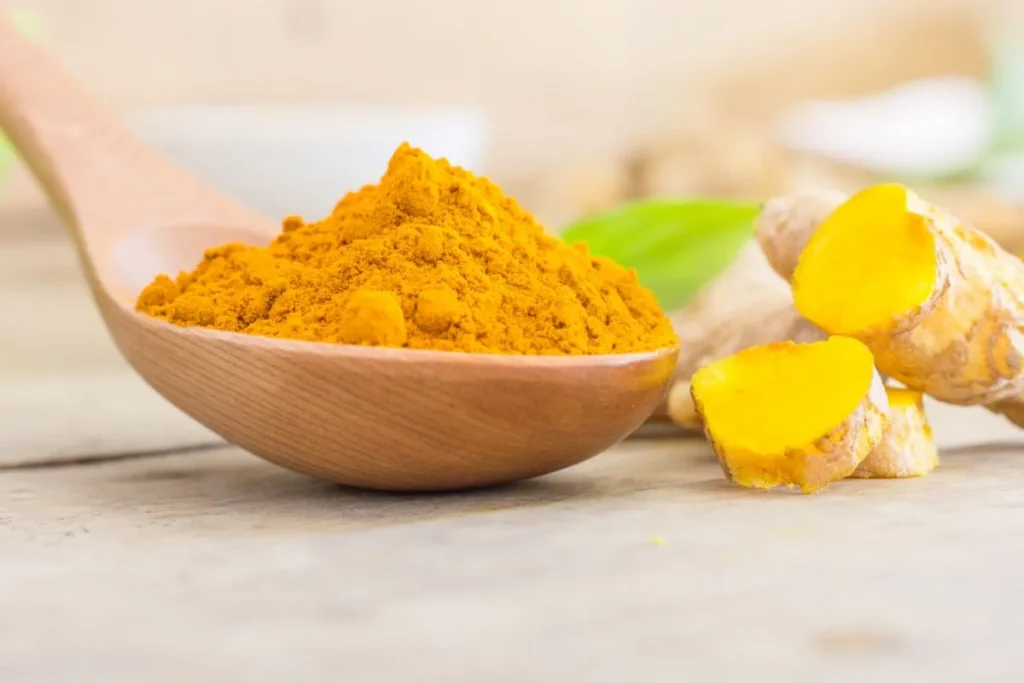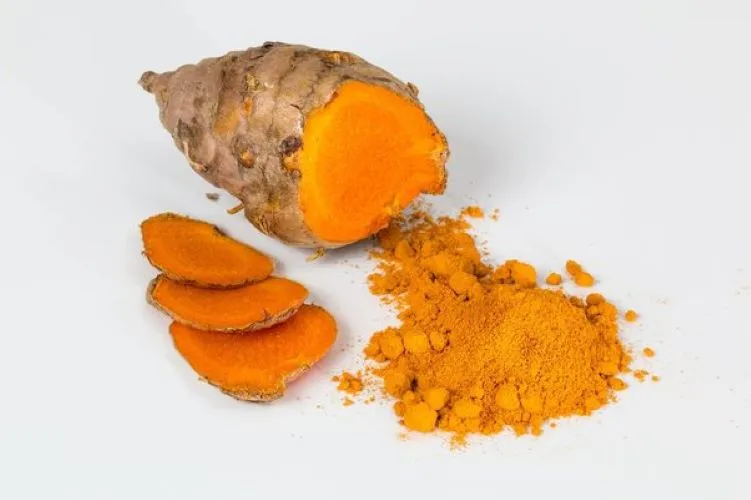Introduction to Turmeric’s Benefits
Turmeric has many benefits, not only on the skin but also on the body. Turmeric improves its function. How much turmeric should be taken? How should it be taken? So that it reaches every tissue of the body. It can be absorbed properly in the body, this point is critical because we don’t want whatever we are eating, it will come out of the body without any benefit. See, at the beginning of every disease, inflammation or reduces size.
Turmeric and Heart Health
It contains the natural compound curcumin, prevents the hardening of blood vessels. Heart cells protect the endothelium. The endothelium is the layer of blood vessels and the cells present in the heart that helps the proteins, vitamins, and minerals present in the blood to be absorbed into these cells and tissues. Because of this, the food reaches the cells, they function normally, chances of heart disease decrease. Lipid production decreases. Blood pressure remains normal. It stops the blood clots in the blood vessels. Curcumin helps in controlled cell death, which is called apoptosis. In this, the number of cells in the body that lose their structure due to free radical damage begins to decrease. The risk of cancer decreases.
Turmeric’s Role in Disease Prevention
When a virus or bacteria enters the body, the immune system becomes active. The immune system is attacked by helper T cells, cytotoxic T cells and B cells. They limit their activity. These cells form groups and keep in contact with each other through signals. When a virus or bacteria comes, a group signals the other and they all attack it. Curcumin is the transmission of these signals. It helps in establishing transmission. It strengthens these signals. Turmeric improves digestive health, stomach, small intestine and liver function. It reduces indigestion, bloating, and gas. It has anti-fungal, anti-viral, anti-bacterial, even anti-H pylori properties. Curcumin protects brain cells, which improves cognitive function.
2. How Turmeric Supports Digestive Health
Turmeric has been used for centuries in traditional medicine to aid digestion. Curcumin stimulates the production of bile, which is essential for breaking down fats in the digestive system. This can help prevent indigestion, bloating, and gas.
- Relieving Digestive Discomfort: Regular consumption of turmeric can soothe an upset stomach and improve overall digestive function. It can also help manage symptoms of irritable bowel syndrome (IBS) and other digestive disorders.
- Promoting Gut Health: Turmeric’s anti-inflammatory and antimicrobial properties support a healthy gut by reducing inflammation in the digestive tract and fighting off harmful bacteria. This can lead to better absorption of nutrients and overall digestive well-being.
3. Boosting Your Immune System with Turmeric
Turmeric’s ability to reduce inflammation and fight free radicals also supports a strong immune system. A healthy immune system is essential for protecting the body against infections, illnesses, and chronic diseases.
- Fighting Off Infections: Curcumin has antimicrobial properties that help the body combat bacteria, viruses, and fungi. This makes turmeric an excellent natural remedy for boosting immunity, especially during cold and flu season.
- Enhancing Immune Response: Regular intake of turmeric can enhance the body’s immune response, making it more effective at fighting off pathogens and reducing the severity of illnesses.
4. Practical Ways to Incorporate Turmeric into Your Diet
Turmeric is incredibly versatile and can be added to a wide variety of dishes. Here are some practical ways to include it in your daily diet:

- Golden Milk: Also known as turmeric latte, golden milk is a warm and comforting drink made by mixing turmeric with milk (or a plant-based alternative) and spices like cinnamon and black pepper. It’s a great way to enjoy the benefits of turmeric, especially before bed.
- Smoothies: Add a teaspoon of turmeric powder to your morning smoothie for an antioxidant boost. Pair it with fruits like mango or pineapple for a delicious and nutritious drink.
- Curries and Soups: Turmeric is a staple in many curry recipes. It adds a warm flavor and vibrant color to soups, stews, and rice dishes. Combine it with other spices like cumin and coriander for a flavorful meal.
- Turmeric Supplements: If you’re not a fan of the taste, turmeric supplements are a convenient way to get your daily dose of curcumin. Look for supplements that include black pepper extract (piperine), which enhances curcumin absorption in the body.
5. Choosing the Best Form of Turmeric
Turmeric is available in various forms, including fresh root, dried powder, and supplements. Each form has its benefits:
- Fresh Turmeric Root: The freshest option, but it can be difficult to find and requires more preparation. It’s great for juicing or grating into recipes.
- Turmeric Powder: The most common and versatile form, perfect for cooking and easy to find in grocery stores. It’s a convenient way to add turmeric to your diet.
- Turmeric Supplements: Ideal for those who want a concentrated dose of curcumin without the taste of turmeric. Always choose high-quality supplements with added black pepper for better absorption.
Common Questions About Turmeric
Here are some frequently asked questions about turmeric and their answers:
Q: Can turmeric be taken daily?
A: Yes, turmeric can be taken daily in moderation. Whether through cooking, in drinks like golden milk, or as a supplement, incorporating turmeric into your daily routine can provide various health benefits. Just be mindful of the dosage, especially if taking supplements, as too much turmeric may cause digestive issues.
Q: Is turmeric safe for everyone?
A: Turmeric is generally safe for most people when used in food. However, those with gallbladder issues, bleeding disorders, or certain digestive problems should consult a doctor before taking turmeric supplements. Pregnant or breastfeeding women should also seek medical advice before adding large amounts of turmeric to their diet.
Q: Can turmeric replace medication?
A: While turmeric has many health benefits, it should not replace prescribed medication without a doctor’s guidance. Turmeric can complement conventional treatments, but it’s essential to consult with a healthcare provider before making any changes to your medication regimen.
Q: How much turmeric should I consume daily for health benefits?
A: The recommended daily intake of turmeric varies, but studies suggest that 500-2,000 mg of turmeric extract, which contains curcumin, is effective for health benefits. For cooking, about 1 teaspoon of turmeric powder per day is a good starting point. If taking supplements, follow the dosage instructions on the product or consult with a healthcare provider.

Conclusion: Making Turmeric a Part of Your Daily Routine
If you are using turmeric, then do use black pepper with it. If you are making meat, then try to have fat with that meat, If you mix black pepper and fats with turmeric, then its absorption increases. It can be digested well. In some studies, taking black pepper with turmeric increases its absorption rate. increases by 2000% and fat because curcumin is a fat-soluble compound in this way it can go in the whole body, and it can be absorbed well in tissues, olive oil, butter, coconut oil, and fat, all these are good options for essential fats. Blood pressure and diabetes patients can take it. include turmeric in your diet plan onboard your doctor.
Is turmeric essential oil better for skin or hair care?
Turmeric essential oil can benefit both skin and hair care, but its benefits tend to be more prominent for skin care. Here’s a breakdown:
Turmeric Essential Oil for Skin Care
- Anti-Inflammatory: Turmeric essential oil is known for its strong anti-inflammatory properties, effectively reducing redness, swelling, and irritation on the skin.
- Antioxidant: It’s rich in antioxidants, which help fight free radicals and prevent premature aging, reducing the appearance of fine lines and wrinkles.
- Brightening: Turmeric can help even out skin tone, fade dark spots, and brighten the complexion, giving the skin a natural glow.
- Acne Treatment: Its antibacterial properties can help prevent and treat acne, making it a great addition to skincare routines for those with acne-prone skin.
Turmeric Essential Oil for Hair Care
- Scalp Health: The anti-inflammatory and antibacterial properties of turmeric essential oil can help soothe an irritated scalp, reduce dandruff, and prevent infections.
- Hair Growth: By improving scalp health, turmeric essential oil can create a better environment for hair growth, though its effects are generally less direct compared to other oils like rosemary or peppermint.
While turmeric essential oil is beneficial for both skin and hair, it is generally considered more effective for skin care due to its powerful anti-inflammatory, antioxidant, and brightening properties. It can help with a wide range of skin issues, from acne to aging, making it a versatile addition to a skincare routine. However, it can still be useful for promoting scalp health and addressing dandruff in hair care.



